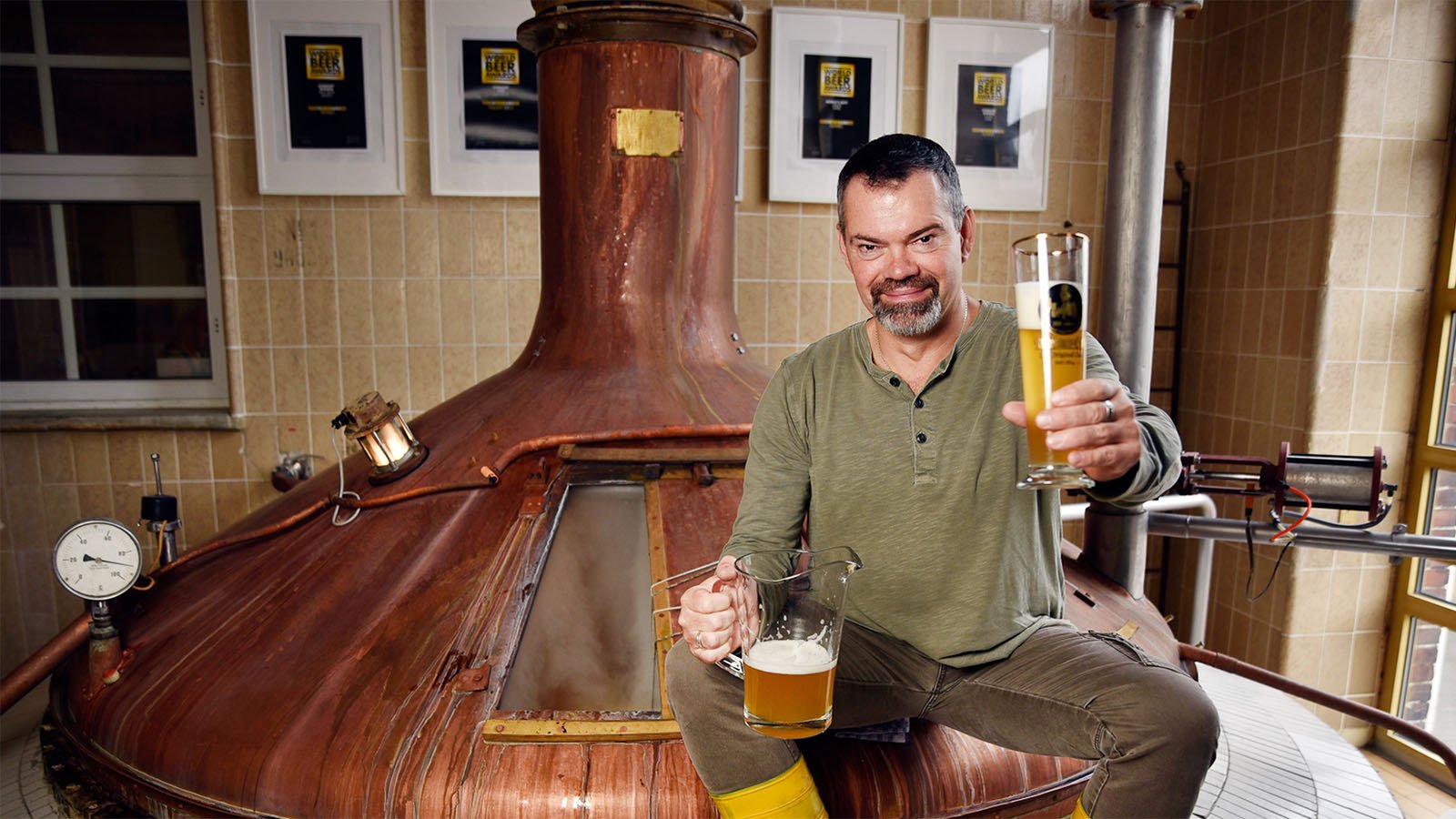
Gose history
How it all began…
Legend has it that Gose was first mentioned by the German Emperor Otto III (983-1002) who praised its flavor. The beer of Goslar -abbreviated Gose- spread quickly through the Harz Mountains. That is why a lot of towns of the Harz Mountains had their own Gose in the Middle Ages. The oldest preserved document of Gose is originated from the Monastery Ilsenburg and is dated March 27th, 1332.
Prince Leopold I of Anhalt-Dessau- called the “Old Dessauer”- chose Gose as his favorite drink and got it brewed in his prince’s property in Glauzig in 1712. In 1738 he launched Gose in Leipzig and obtained the required liquor license from the Leipzig city council. So Leipzig got its first Gose bar in the present district Eutritzsch. It was hardly known when scores of students and citizens, councilors and craftsmen flooded into the Gose bar. Even Goethe was enthusiastic and wrote: “Yes, I have been at the Gose bar, too.” From 1806 to 1812 Napoleon declared the Continental System for Europe. As a result of the tariff law the price of Gose from the Duchy of Anhalt increased highly and it could hardly be distributed in Saxony and Prussia. Leipzig ran short of Gose! So the time was ripe for Ritterguts Gose.
In 1824 master brewer Johann Philipp Ledermann came to the small village Döllnitz near Halle and brought the recipe of brewing Gose from Goslar. In the same year he started brewing Gose at Döllnitz Manor – the Ritterguts Gose was born! In the second half of the 19th century the Ritterguts Gose Brewery already supplied plenty of Gose bars in Leipzig and Halle. In the meantime the Ritterguts Gose replaced the one from Anhalt and took over its market almost completely.
In the village Döllnitz there were even several Gose breweries afterwards and for making a differentiation the original Gose brewery named itself “Ritterguts Gose”. In Leipzig several breweries tried to produce Gose as well but often only with moderate success. The Ritterguts Gose stayed the market leader.
Gose was transported – in the state of fermentation – in large wooden barrels by carriages to the Gose bars. The landlords filled Gose into the long-neck Gose bottles just in their storage cellars and let it mature there. These special bottles were not shut but a clot was formed by the ascending yeast.
Especially from 1880 to 1920 was the heyday of Gose: there were about 80 Gose bars only in Leipzig and Gose was the most consumed beer in town. It was only changed by the increased appearance of beer in Pilsner tradition. After the end of World War II in 1945 Döllnitz Manor was dispossessed and the brewery facility was dismantled. This meant the end of the Ritterguts Gose for the moment!
In 1949 the Leipzig brewing master Friedrich Wurzler started the manufacturing of Gose using the old recipe of Döllnitz at his little brewery. He ran the only brewery of Gose. All the others were closed after the end of the war. But in 1966 the meanwhile partially nationalized Brewery Wurzler was closed, too.
Not until 20 years later they started new attempts to revive the tradition of Gose in Leipzig. In 1986 the famous Gose bar “Ohne Bedenken” (without misgivings) was reopened by Lothar Goldhahn. The served Gose was delivered by a wheat beer brewery in East Berlin that stopped the production soon. Lothar Goldhahn gave up the Gose bar in 1990 and took the Löwen Brewery in Dahlen to brew his own Gose. Unfortunately he had to close the brewery due to economic reasons in Dahlen in 1995. As a replacement a Bavarian Gose was served in Leipzig then.
In 1996 the hobby brewer Tilo Jänichen started experimenting on Gose after studying carefully old documents. He experienced Gose and came to appreciate it as a student at the Gose bar in the early 1990s. After a lot of tries to brew tiny amounts of Gose at home he finally succeeded. By chance he got the old recipe. In the beginning of 1999 it was done – he managed to brew Gose!
On September 9th, 1999 the old traditional company was set up again. Brewing master Armin Brandt from the Leipzig micro-brewery “Zum Kaiser Napoleon” optimized the process for production. Already the trial brew was a success – Gose has found again its home in Leipzig!
At the beginning the Ritterguts Gose was sold only in barrels and served just in four restaurants. In a little while there were already 20 restaurants serving Ritterguts Gose and the production capacity of the micro-brewery got scarce. Another solution was much-needed.
So a contract was closed with Hans Bauer from the Leipzig family brewery Ernst Bauer guaranteeing and expanding the production of Gose in 2001. Now the Ritterguts Gose was brewed in a brewery with a long tradition in the heart of Leipzig.
Since summer 2002 there has been bottled Ritterguts Gose once more. New trade channels were thereby also developed supporting a further distribution of the drink. At this time you could buy the Ritterguts Gose by retail, too. At the end of 2007 the family brewery had to close down and transferred the whole production to the brewery Hartmannsdorf between Leipzig and Chemnitz. The Ritterguts Gose moved to the new brewery as well and has been manufactured there since then.
Currently the Ritterguts Gose is almost exclusively available in the area Leipzig-Halle (Central Germany): approx. 120 restaurants, 60 retailers and 15 wholesalers have it in their product range. For a couple of years the Ritterguts Gose has exported increasingly in a couple of countries. The Ritterguts Gose has become more well-known for the last years and has won several awards.
On July 19th, 2014 the celebrations of the anniversary “190 years of Ritterguts Gose” took place in Döllnitz. The festivities included an installation of a memorial plaque commemorating Johann Philipp Ledermann (1793-1852), the first brewing master and originator of the Ritterguts Gose.
After the Gose sales – on the domestic market and in exports – increased continuously in recent years, we are laying a new focus on the plan now. The target is to be able to maintain an excellent and constant quality even with increasing sales volume. At the beginning of 2015 we chose a new partner we want to promote our Ritterguts Gose with in the future. We have decided for the Brewery Reichenbrand in Chemnitz, because it is a traditional brewery with a young dedicated master brewer, who works in the manner of craft brewing that has been maintained by the family Bergt for five generations. We are particularly pleased about the fact that we can practice an open fermentation again. Now we are well prepared for the future.
Learn more about Gose
Our brewery
We brew our beers in close cooperation with Bergt Bräu Reichenbrand, the oldest private brewery in Chemnitz.
Distribution and bars
If you are interested in our beer, we like to refer you to one of our international partners or bars in germany.

